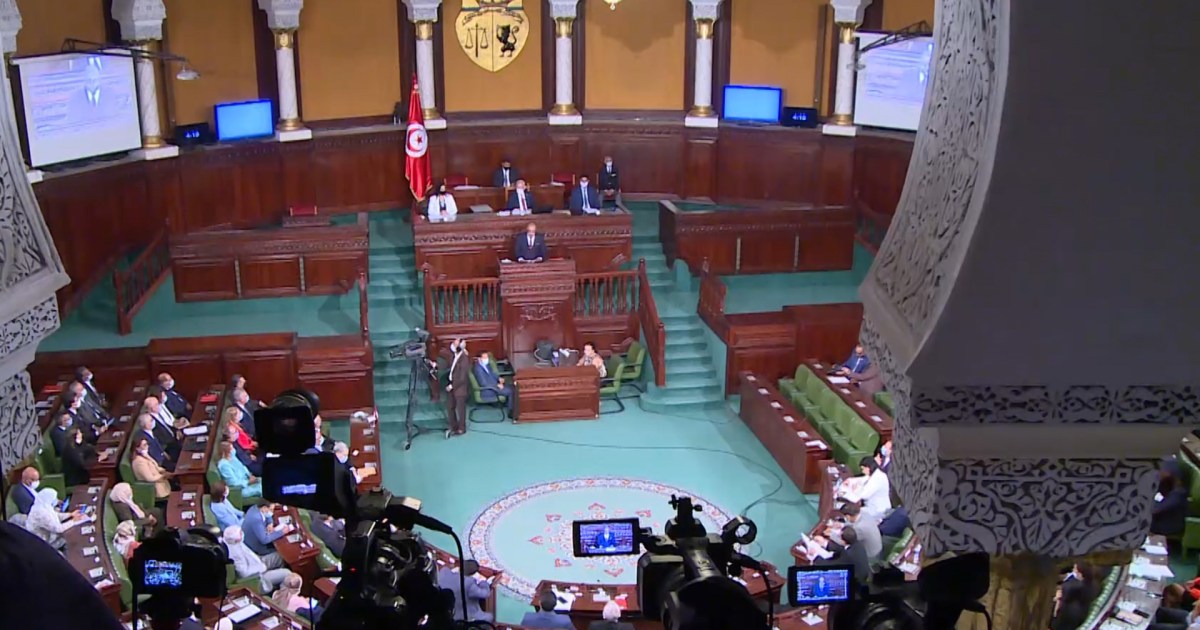Members of the government of Hicham El Mechichi took the constitutional oath this evening before Tunisian President Qais Saeed, who called on her to assume "responsibility and stand in front of traitors", provided that she will formally assume her duties tomorrow, Thursday, from the caretaker government.
At the Carthage Palace, where the oath was taken, Saeed said, addressing the new government, that in this extremely complex social, economic and health circumstance, you know the effort and hardship that awaits you.
He added, "I wish you success and take responsibility with all its burdens and work side by side to stand before the many traitors and the traces of colonialism who sold their homeland."
Immediately after the vote to give confidence to his government, Al-Meshishi refused, in statements to reporters, to accuse him of “betraying” President Saeed, who had charged him with forming the government, and said that these accusations were “meaningless” and he rejected other accusations that his government includes ministers around whom suspicions of corruption are hovering.
Although President Saeed was the one who suggested Al-Meshishi, there are politicians who said that he abandoned his support for him due to differences that arose between them in the last stages of forming the government.
And Said had met - a day before the vote on the government - leaders in the Ennahda, Democratic Current, and People's Movement, and Long Live Tunisia parties, and they confirmed that the president asked these parties to topple the Meshish government in exchange for promises including not to dissolve parliament and restore the previous government coalition while changing the traps in person. Other.
Parliament voted early this morning with a majority of 134 votes in favor and 67 against, out of 217. The Mechanically-appointed government includes independent competencies from political parties, divided into 25 ministers and 3 state writers, including eight women.
After the session ended, Al-Meshishi reiterated that his government's priorities are to stop the drain of public finances, reform the public sector, and support investment.
In the first international reaction to granting confidence to the government, the European Union welcomed the move and expressed its hope that this development would ensure the political stability that the country needs to face the social and economic challenges that have been exacerbated by the Coronavirus epidemic.
In a statement, the European Union reaffirmed its distinguished partnership with Tunisia and renewed its desire to work closely with the new government.
It is noteworthy that Machichi, 46, became the ninth prime minister in Tunisia since the 2011 revolution, and he previously held the interior portfolio, and before that he held the position of first advisor to the president of the republic in charge of legal affairs.

